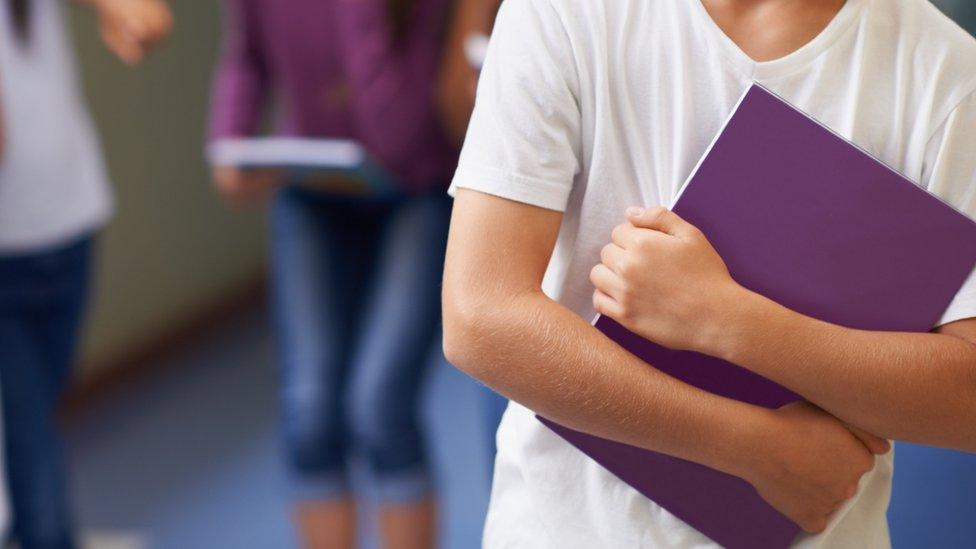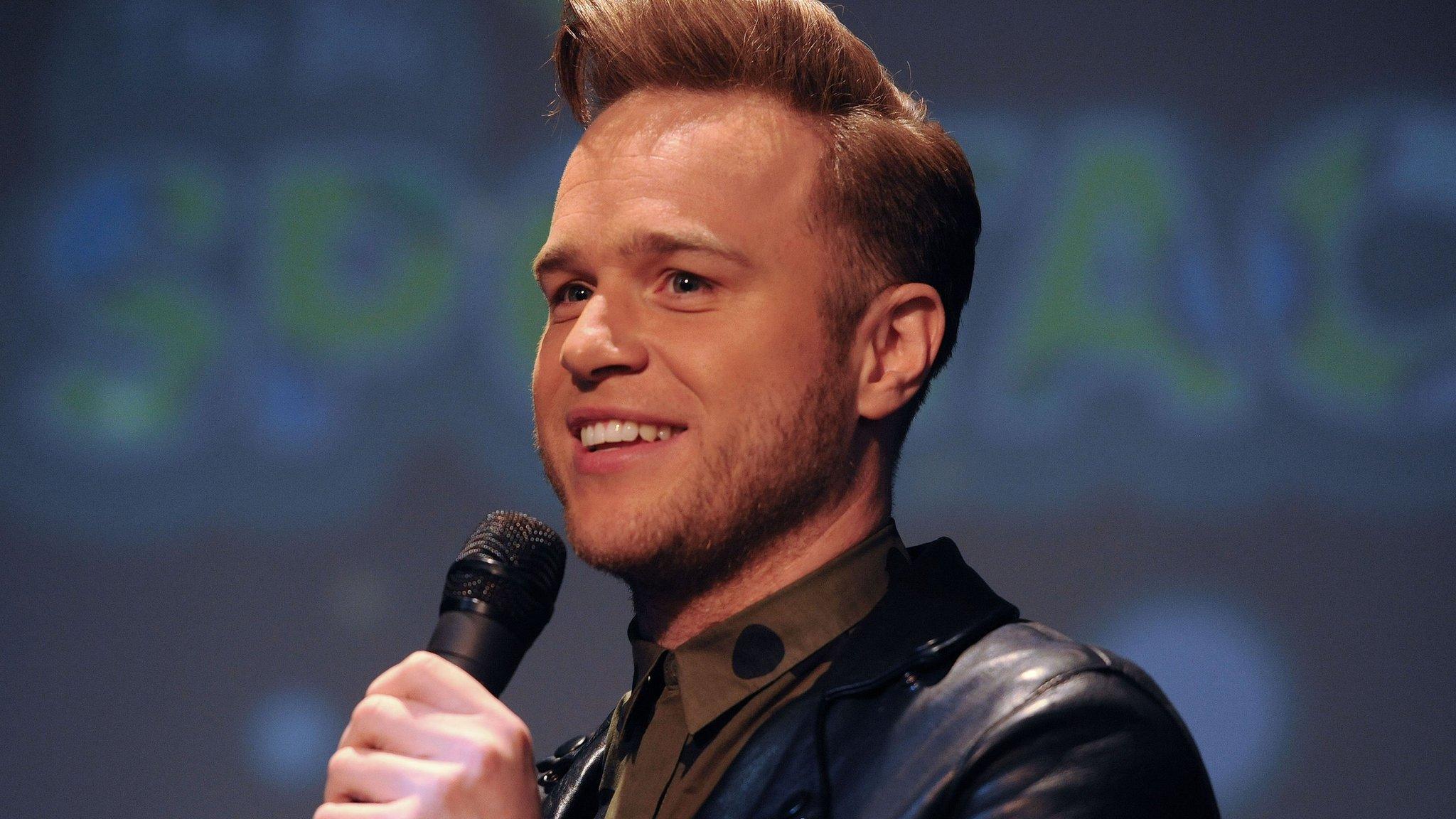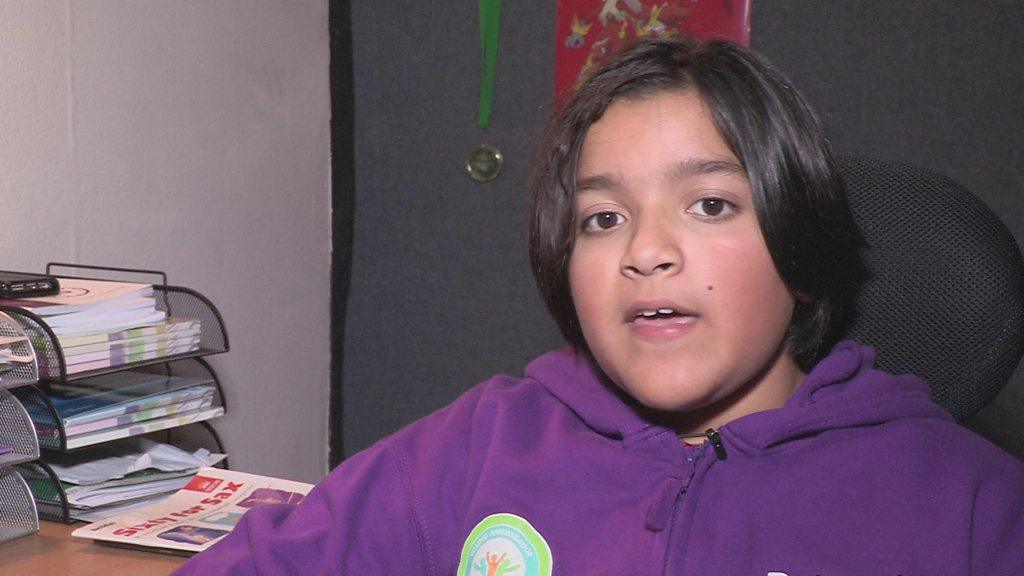Anti-Bullying Week: Different types of bullying explained
- Published

Between 13 and 17 November it is Anti-Bullying Week.
This is a special week to encourage everyone - children, teachers and parents - to take a stand against bullying throughout the year.
This year the theme is Make A Noise About Bullying. It's been chosen to help pupils and teachers feel empowered to do something positive to stop bullying and tackle the harm and hurt that bullying causes.
Here at Newsround, we have spoken to many of you about bullying.
You have told us what you think about different aspects of bullying, you have asked us your questions and we have heard from many famous faces about their experiences of bullying too.
What exactly is bullying?
WATCH: How to recognise bullying
Bullying is when someone, or a group of people, repeatedly and intentionally hurt another person or people.
It can take different forms. For example, it could be physical (like pushing somebody around), emotional (for example, excluding someone) or verbal (such as calling somebody nasty names).
Bullies often do this to gain a sense of power over the person they are bullying, who is made to feel sad, scared or alone.
Bullying can happen in person face to face, or it can take place online - for example, via social media or games.
It often starts when people pick on something about someone that's different.
WATCH: 'It's not your fault' - Alexander's anti-bullying advice
It could be about what they look like - for example, the colour of their skin - or who they are as a person - for example, how well they are doing at school or how good they are at something.
When bullying takes place online it is called cyberbullying. This form of bullying has become much more common, as many more young people have mobile phones and computers than they used to.
If you are worried that you or anyone that you know is being bullied, speak to an adult that you trust you about it. That might be a teacher or someone in your family.
You can find more help and advice on the Own It website.
Or you can call ChildLine for free on 0800 1111.
- Published9 February 2016

- Published16 November 2016

- Published17 August 2017

